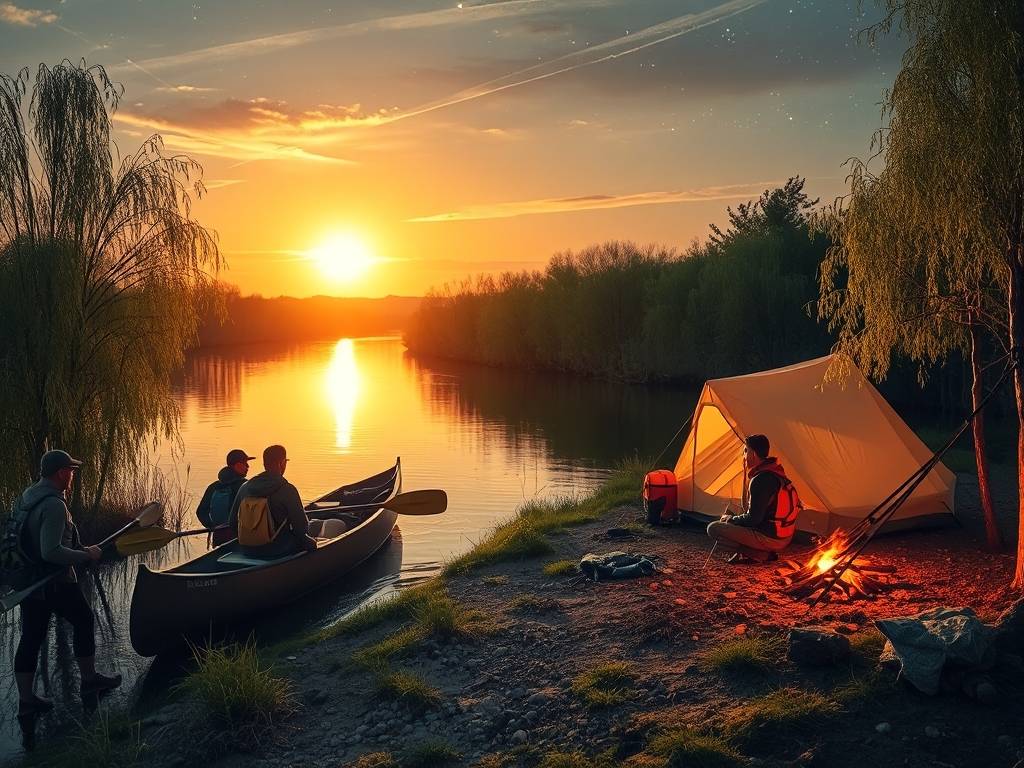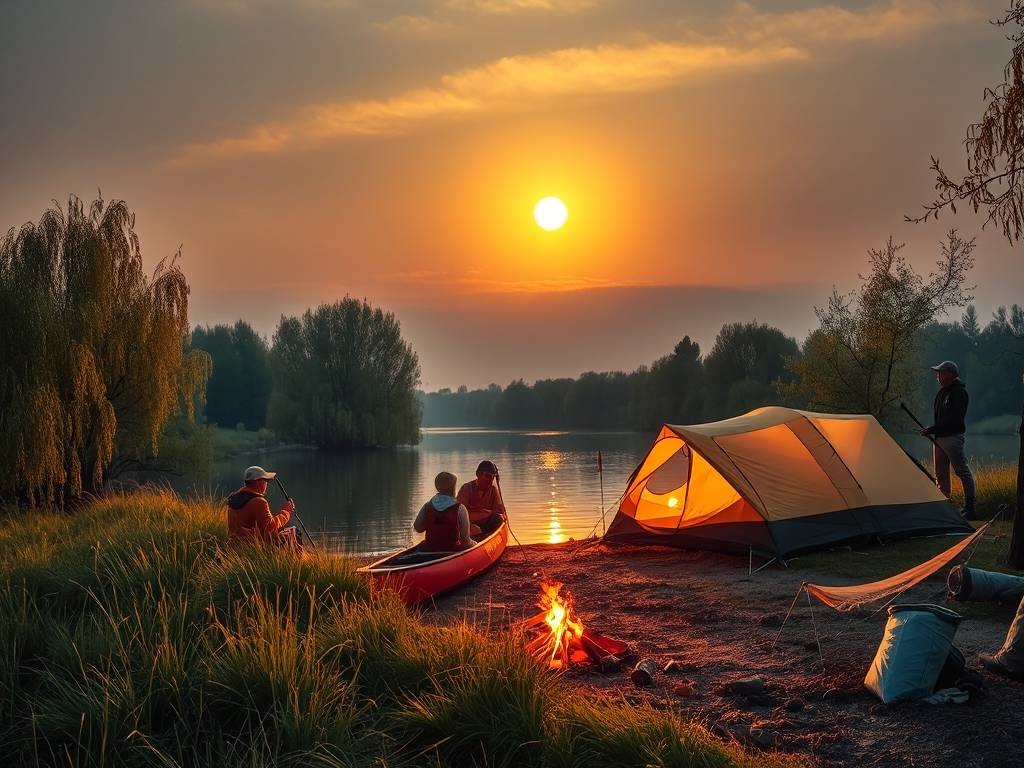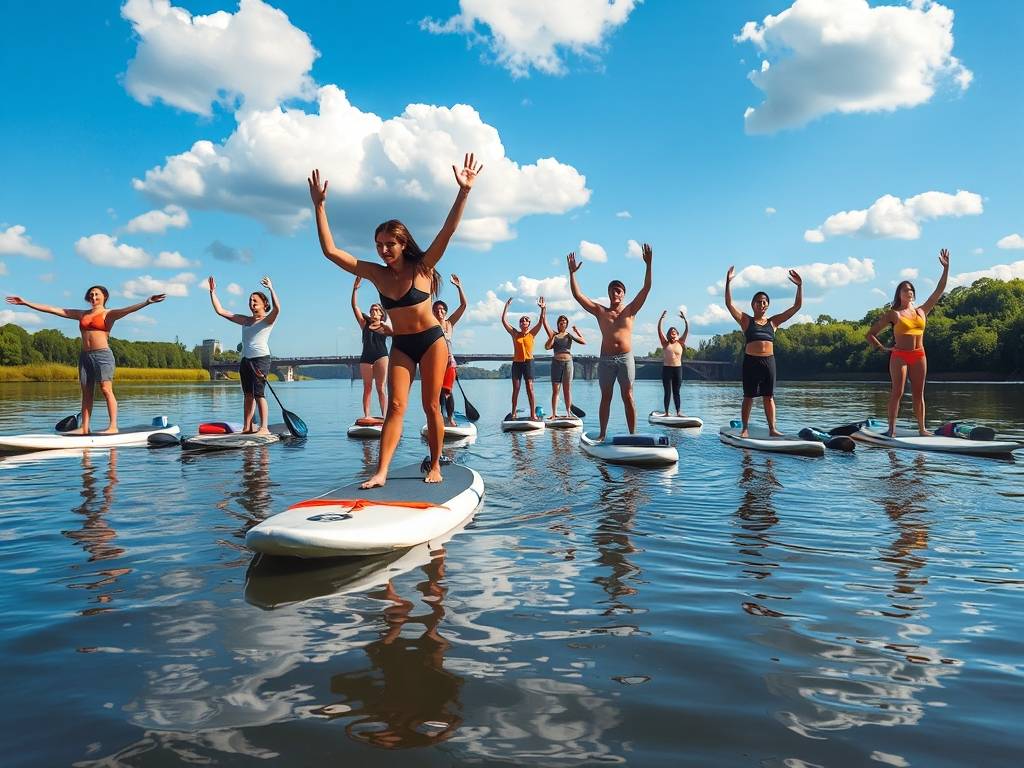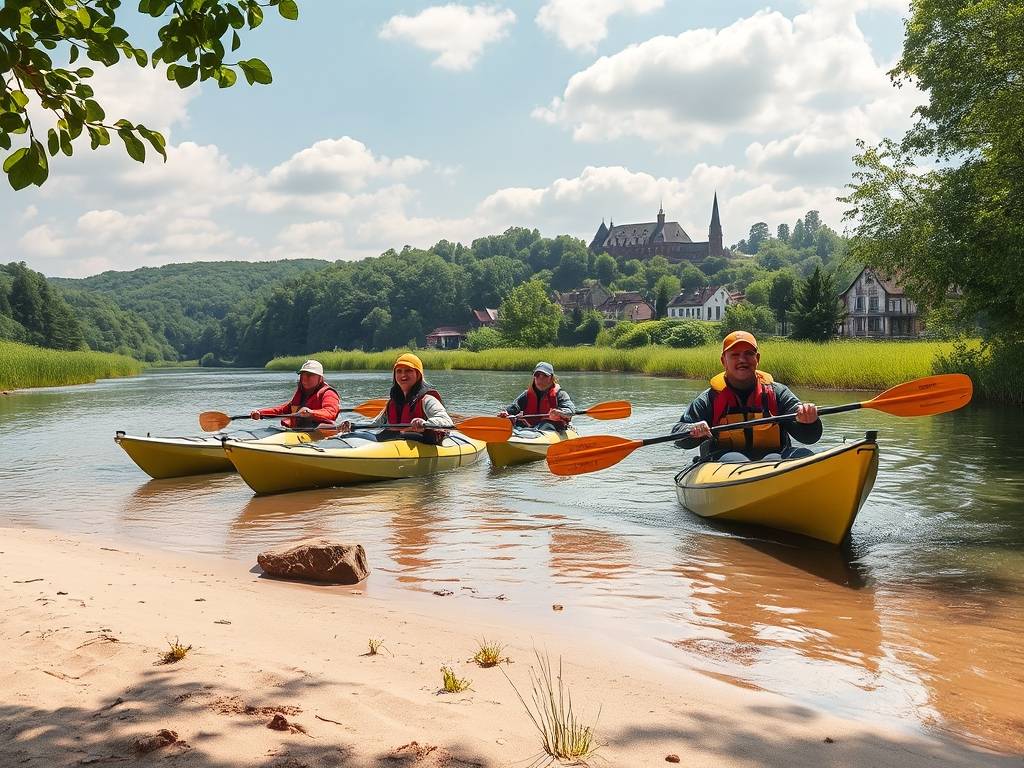Global Travel Information
Elbe River Canoe Camping Trips: Camp Along the River
Paddling the Elbe: A Journey Through Time and Tide
The river does not hurry, yet it arrives. This ancient proverb, whispered by the waters of the Elbe, becomes the guiding rhythm of a canoe camping trip along its course. To travel the Elbe by paddle and camp upon its banks is to engage in a dialogue with the heart of Central Europe. It is a journey that defies the modern obsession with speed, trading highways for water lanes and hotel reservations for the simple, profound act of finding a home for the night on a sandy spit of land. The Elbe, flowing over 1,000 kilometers from the Krkonoše Mountains of the Czech Republic to the North Sea in Germany, offers a unique tapestry of wilderness, history, and culture, best absorbed not from a train window, but from the intimate vantage point of a canoe.
The adventure begins with preparation. Unlike a structured tour, an independent canoe camping trip on the Elbe demands a partnership with the river. The beauty of this waterway, particularly its German section from the Saxon Switzerland National Park onwards, is its gentle nature. It is a river for journeymen, not just experts. Its current is steady but rarely fierce, its waters wide and navigable. The choice of vessel is key: a sturdy, open Canadian canoe or a sea kayak offers ample space for dry bags containing a tent, sleeping bag, provisions, and a spirit of self-reliance. Maps are studied not for rest stops, but for potential campsites—those unmarked, often spontaneous clearings along the riverbank that are the trip’s true treasure.

Launching the canoe is a moment of quiet transition. The solidity of the land gives way to the fluidity of the water. The first strokes of the paddle are clumsy, a splashy announcement of one’s presence. But soon, a rhythm establishes itself—a smooth, rotating motion that becomes as natural as breathing. The sounds of the world left behind—the hum of traffic, the chatter of crowds—fade into a symphony of water lapping against the hull, the call of a distant buzzard, and the whisper of the wind through the riverside willows and poplars. This is the first gift of the Elbe: silence and space.
Paddling eastward from Dresden, the landscape immediately asserts its drama. The sandstone cliffs of Saxon Switzerland rise like mythical giants from the river, their faces weathered into fantastical shapes. The Lilienstein and Königstein fortresses perch atop these monoliths, silent sentinels that have watched over the river for centuries. From the water, their scale is humbling. The canoe glides past, a tiny speck on the vast canvas of geology and history. It is a perspective inaccessible to the hiker on the cliff tops or the tourist on a crowded steamboat; it is a view earned by muscle and quiet persistence.
The rhythm of the days settles into a pleasant monotony. Mornings start with the sun painting the mist on the water in hues of gold and pink. The ritual of boiling water for coffee on a portable stove, the scent mingling with the damp earth, is a luxury no five-star hotel can provide. The tent is packed away, the gear stowed with an efficiency born of repetition. Then, the push-off, the canoe sliding back into the current, becoming part of the river’s flow once more.
The river is a constantly changing diorama. The dramatic rock formations gradually soften into the gentle, vine-covered slopes of the Elbe Valley wine region. Quaint villages with half-timbered houses and church spires dot the banks. At times, the river feels remote and wild; at others, it passes under the arches of historic bridges or alongside bustling riverfront promenades in towns like Meissen, home to its famous porcelain. A stop here to explore the cobbled streets and the towering Albrechtsburg Castle is a welcome interlude, a chance to taste the local culture before returning to the solitude of the water.
But the true magic of an Elbe canoe trip reveals itself in the late afternoon, as the sun begins its descent. This is the time for the day’s most important decision: finding camp. There are official campsites, of course, offering showers and a guaranteed spot. Yet, the soul of this adventure lies in wild camping—the practice of seeking out a discreet, unused patch of riverbank for a single night, leaving no trace by morning. This requires a keen eye and respect for the environment. A promising bend in the river might reveal a secluded meadow, a soft bed of pine needles beneath a canopy of trees, or a broad, sandy beach.
The feeling of claiming such a spot is one of pure, unadulterated freedom. It is a return to something primal and deeply satisfying. The canoe is pulled safely ashore, the gear unpacked. The tent rises, a colorful shelter against the vast sky. As dusk settles, a small, careful campfire is lit (where permitted and safe), its crackling flames becoming the center of a new, miniature universe. Dinner, perhaps a simple pasta dish or soup, tastes like a feast under the emerging stars. The mind, unburdened by notifications and schedules, is free to wander—to reflect on the day’s journey, to listen to the nocturnal sounds of the river, to simply be.

This intimate connection with the natural world is profound. One might share the evening with a family of beavers silently swimming past, their V-shaped wakes cutting through the reflective water. The air fills with the scent of damp earth and blooming river flowers. The sky, far from the light pollution of cities, becomes a breathtaking dome of constellations. The river itself is a constant, murmuring companion, its flow a lullaby that promises another day of discovery tomorrow.
As the journey continues northwest, past the cultural jewel of Wittenberg, where Martin Luther sparked the Reformation, and through the vast floodplains towards Hamburg, the character of the Elbe changes once more. The banks flatten, the sky expands, and the river broadens into a mighty artery leading to the sea. The paddling can become more challenging here, with winds sweeping across the open landscape. But the sense of accomplishment grows with every kilometer conquered. The trip culminates not just in reaching a geographical endpoint, but in the internal transformation that occurs when one lives by the rhythm of the sun and the current for days on end.
A canoe camping trip on the Elbe is more than a vacation; it is an immersion. It is the physical effort of the paddle, the peace of a riverside camp, and the slow unfolding of a landscape steeped in history. It teaches patience, self-reliance, and a deep appreciation for the simple, essential things: a warm sleeping bag, a hot meal, a stunning sunset, and the timeless flow of a great river. It is an invitation to slow down, to listen, and to discover that the most rewarding destinations are not always places on a map, but the states of mind we find along the way.
相关文章
- Elbe River Driving Tours: Road Trips Near the Waterway
- Elbe River Train Tours: Relax & Enjoy the Views
- Elbe River Bus Tours: Affordable Group Travel
- Elbe River Boat Tours: Guided Excursions on the Water
- Elbe River Helicopter Tours: Aerial Views of the River
- Elbe River Hot Air Balloon Tours: Float Over Scenic Areas
- Elbe River Paragliding Tours: Adventure in the Sky
- Elbe River Skydiving Experiences: Thrills Near the Water
- Elbe River Zip Line Adventures: Fun for the Whole Family
- Elbe River Mini-Golf Courses: Play with River Views
发表评论
评论列表
- 这篇文章还没有收到评论,赶紧来抢沙发吧~


